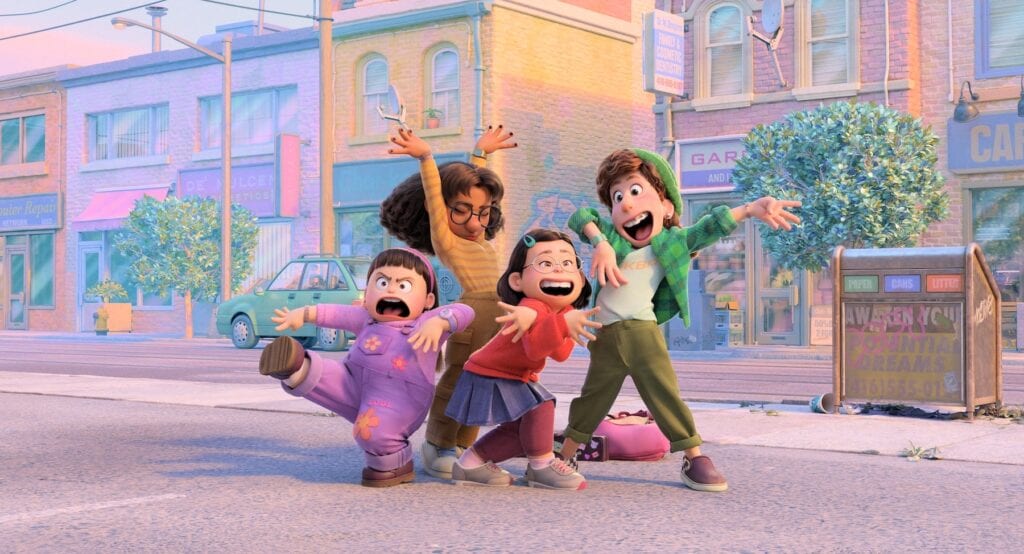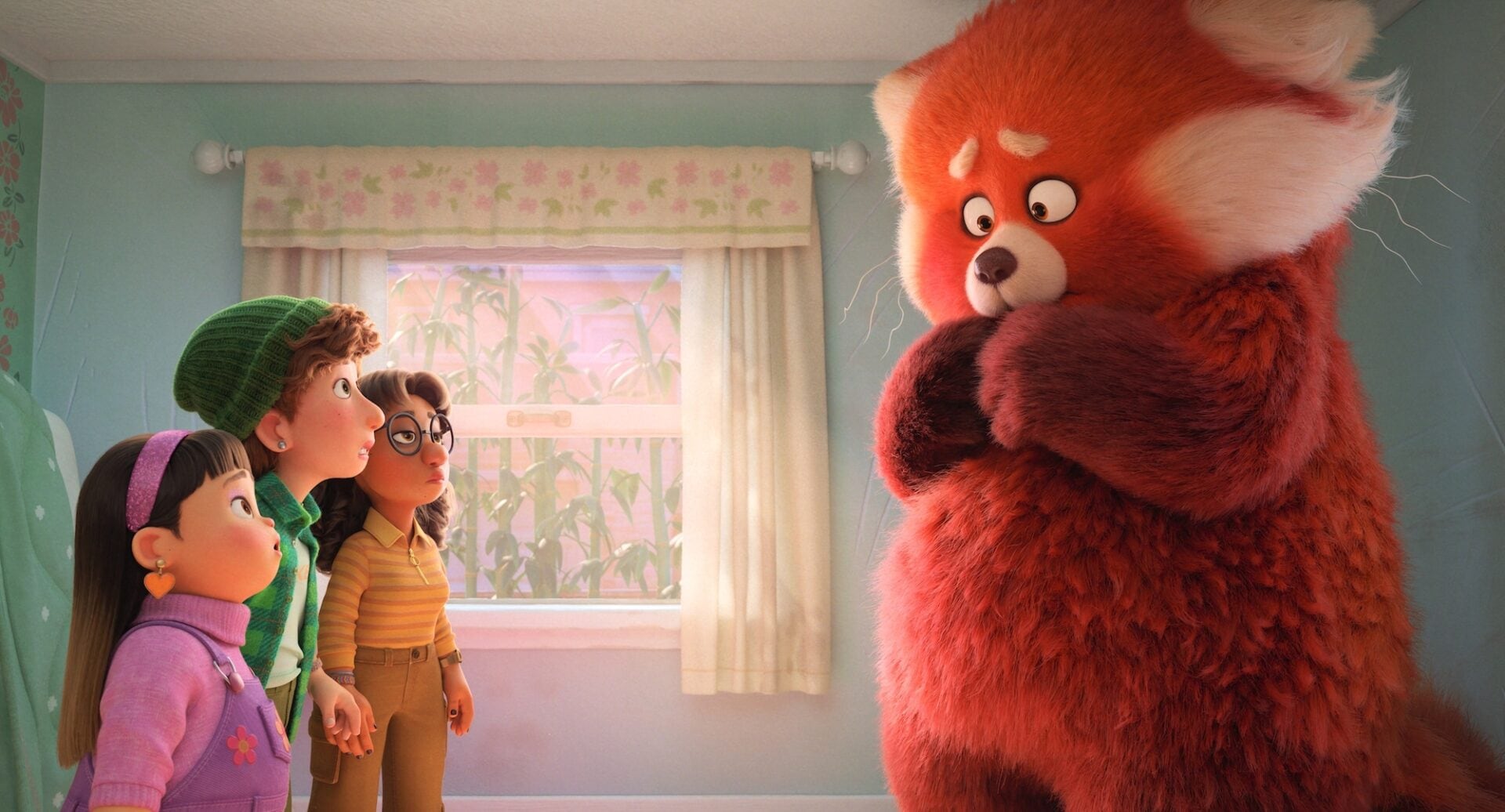Pixar is known for family-friendly films, like the “Toy Story” franchise and “Coco,” but the company’s latest release has been an unexpected source of debate online. Earlier this month, “Turning Red” came out on the Disney+ streaming service. The movie tells the story of Mei Lee, a 13-year-old girl who must choose between living up to her mother’s expectations or following her own heart. But some are saying this pre-teen coming of age tale is “inappropriate” for young kids. (Note: There may be a few spoilers ahead.)

In the movie, Mei is like a lot of 13-year-olds. She has a favorite boy band, she gets her first crush, and she has an awesome group of friends who always have her back. The one big thing that sets her apart is her discovery that when she gets too excited, she magically transforms into an enormous red panda. The first time this happens, Mei races into the bathroom to hide. Her mom knocks on the door to check on her and asks, “Did the red peony bloom?”
This, of course, is a way of asking Mei if she started her period. Next, the mom offers Mei supplies like a hot water bottle and some pads. The scene is brief and indirect, but it was enough to rankle some parents who watched the movie with younger children.
“That ‘Turning Red’ movie is not appropriate for children,” one person writes on Twitter. “Yuck.”
Another person shares a screenshot from the Peloton Moms Facebook group, where a parent writes, “PSA: I watched ‘Turning Red’ with my boys this weekend. Boys ages 9 and 13. They had tons of questions about girls and their periods. I wish there had been a warning before watching it with them.”
And what follows is the poster’s response: “Periods. Aren’t. Shameful.”
The backlash prompted others to remind parents that some kids gets their period as young as age 8, and there’s nothing shameful or “inappropriate” about menstruation.
“My wife got her period at 8. She was a child,” one person writes. “[I] got mine at 12. Also a child. When parents say ‘periods aren’t appropriate for children,’ they’re ignoring who gets their first periods. If ‘Turning Red’ doesn’t appeal to toddlers, parents can choose another movie or turn the TV off.”
Others say period education is important for boys and girls, and parents shouldn’t shy away from the movie just because their child isn’t a teenager yet or may not experience the same things that Mei does.
“I told my 10 year old son that I wasn’t feeling great [because] I got my period. He got me a heating pad, M&Ms, and kissed my forehead,” one parent writes. “Periods don’t need to make kids uncomfortable.”
“‘Turning Red’ is about how messy puberty is,” another person adds. “If you don’t want a movie to talk about hormones, periods, and first crushes to your 12-ish kid, it’s not the movie for your family. But they get to make movies for pre-teen kids. Those kids deserve to see themselves, too.”
Though parents definitely have their own opinions about how and when to have the period talk, experts recommend starting the conversation sooner rather than later. Menstruation typically begins at about age 12, but periods are possible as early as age 8, according to the Mayo Clinic. For that reason, they recommend:
- Starting the conversation early.
- Having an ongoing discussion, rather than a single tell-all.
- Answering questions openly and honestly.
- Providing fact-based information and advice.
Puberty talk may be uncomfortable for some, but it’s a normal part of life, especially for kids headed towards their tween and teen years. If “Turning Red” seems like too much information, it might be a Pixar movie to skip. But the movie addresses the topic in a way that’s easy to bypass if kids don’t understand it. For parents who are ready to address the topic, it might even be a lighthearted way to get the conversation started.






